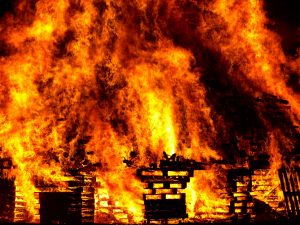Congratulations to Jon Stewart who spearheaded a long and hard fought battle to win medical and disability benefits for veterans who breathed smoke from burn pits during their service in the Iraq and Afghanistan wars. Although not widely known, virtually all of our service people and contractors stationed in the Middle East were exposed on their bases to the daily burning of their trash, plastic, medical waste, and toxic chemicals in open burn pits. Everyone breathed that polluted air on the army bases and it was not good.
What you need to know about the PACT Act and where it takes us from here:
- Many military and contract workers developed cancer, respiratory illness or lost their lives. Until now there has been limited recognition of this tragedy. Now with the passage of the PACT Act under S. 437 Health Care for Burn Pit Veterans Act the surviving veterans will get proper treatment and disability for cancer and respiratory issues through the Veterans Department. Some conditions are presumptive and other conditions require a diagnosis from a doctor relating the condition. Also the VA can have you examined by their doctor. Certain conditions carry a presumption that they came from the burns pits so benefits can be awarded without a causal connection statement from a medical doctor.
- These cancers are now presumptive:

- Brain cancer
- Gastrointestinal cancer of any type
- Glioblastoma
- Head cancer of any type
- Kidney cancer
- Lymphatic cancer of any type
- Lymphoma of any type
- Melanoma
- Neck cancer
- Pancreatic cancer
- Reproductive cancer of any type
- Respiratory (breathing-related) cancer of any type
These illnesses are now presumptive:
- Asthma that was diagnosed after service
- Chronic bronchitis
- Chronic obstructive pulmonary disease (COPD)
- Chronic rhinitis
- Chronic sinusitis
- Constrictive bronchiolitis or obliterative bronchiolitis
- Emphysema
- Granulomatous disease
- Interstitial lung disease (ILD)
- Pleuritis
- Pulmonary fibrosis
- Sarcoidosis
- Veterans can apply for coverage under the PACT (Promise to Address Comprehensive Toxins) Act. This link takes you to the application form. To quality the veteran must show employment during the time periods at these locations:
- Iraq between August 2, 1990, and February 28, 1991, as well as from March 19, 2003, until burn pits are no longer used in this location;
- Southwest Asia (including Kuwait, Saudi Arabia, Oman, and Qatar) from August 2, 1990, until burn pits are no longer used in these locations; and
- Afghanistan, Syria, Jordan, Egypt, Lebanon, Yemen, and Djibouti from September 11, 2001, until burn pits are no longer used in these locations.
This is a much needed recognition for many people who suffer with these conditions. For the families who had their service member return home only to suffer a long unexpected painful death from cancer or respiratory disease, the loss has been devastating. Family members may be entitled to survivor benefits and a modest funeral reimbursement. Read more at the VA site for the amounts.
 Florida Injury Attorneys Blog
Florida Injury Attorneys Blog



